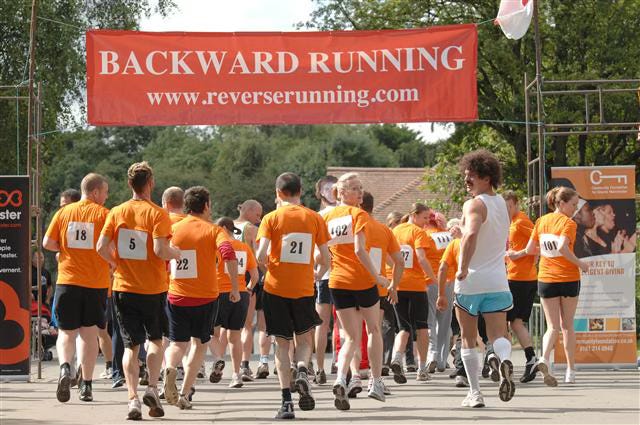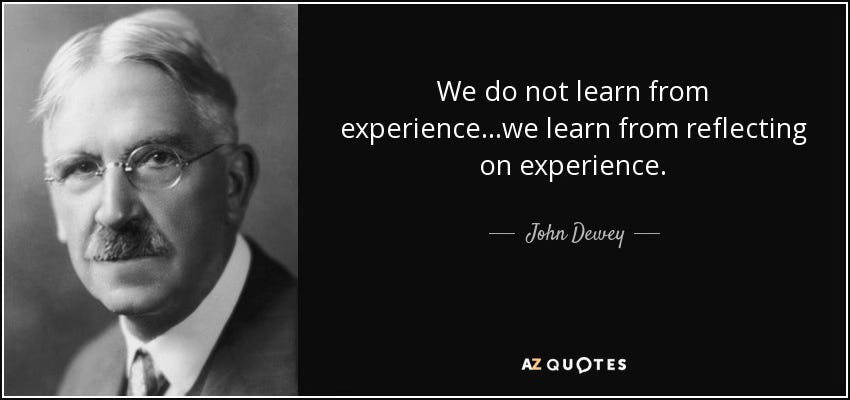Values-Oriented Coaching
There’s more to orientation than just process and outcome
It’s not hard to find coaches talking about being process-oriented and outcome-oriented. Coaches regularly put a great deal of effort into the processes and outcomes they select for athletes in their care. But I want to encourage you to be more selfish. Just for a little bit, I want you to think about yourself first. In some ways, the processes and outcomes coaches choose are already a bit selfish because they’re expressions of what you, the coach, want them, the athletes, to do. But I want you to be selfish in a different sense, I want you to think about why you want them to engage in those processes and pursue those outcomes.
It would be easy for you to answer the why question with something about them: they need to get better at X skill or we are trying to win Y competition. Those aren’t the answers I’m interested in, they’re not nearly selfish enough. I want you to get really selfish. I mean like, what-am-I-even-doing-this-for levels of selfish. Again, there’s an easy answer, just waiting for you to speak it: I’m doing it for them, I want to be a role model. But answers like those still only scratch the surface. If you are doing it for them, what is it exactly you want to do for them? If you want to be a role model, what is it exactly you want to model for them?
I’m interested in these questions because the answers tell you who you are. What I’m interested in are what philosopher Todd May called narrative values. I have heard the hosts of the Excellence, Actually podcast discuss narrative values on multiple occasions and I highly recommend giving them a listen. (There are links to the two episodes I’m drawing from below.) Narrative values say something about who you want to be; maybe just in coaching, maybe in your whole life. The values you hold may not affect everything in your life; your values probably don’t impact how you tie your shoes. But your values definitely impact how you coach.
Even if you’ve never explicitly considered your values, they are impacting your coaching. And that’s precisely why I am asking you to be selfish right now. I want you to explicitly consider your values because doing so will make you a better coach. Knowing your values doesn’t instantly make you win more, but it does make your coaching more authentic, it makes your coaching more in line with what you believe about yourself, what you believe about the sport you coach, and what you believe about the athletes in your care. And doing those things better, I believe, puts you in better position to win.
To be clear, values-oriented coaching doesn’t replace process orientation or outcome orientation. Values-oriented coaching transcends process-oriented and outcome-oriented coaching because your values, whether you know it or not, are driving the choices you make about which processes and which outcomes matter. Why do you choose the processes and outcomes you do? Because they reflect how you want athletes, their families, and other coaches to view you. Because they reflect how you want to view yourself. That’s what makes them narrative values, they allow you to tell yourself and others a story about who you are. Narrative values can guide you when you’re not sure how to choose. If you remember the story you want to tell yourself and others, then you need only choose in a way that supports your story. Who do you want to be?
How do you orient your coaching around your values? You ask yourself three questions when, for instance, you’re planning practices or choosing competitive goals. These questions compose what is called the “logic of appropriateness” in decision making theory.
Question of recognition: what kind of situation is this?
Question of identity: what kind of person am I?
Question of rules: what does a person such as I do in a situation such as this?
What if the team you coach is trailing late in the game? If you see yourself as (or want to be) a tough competitor, then you’ll view the situation differently than if you want to be more patient and measured. Those different views lead to different decisions. The competitor in you may be much more likely to call a time out and exhort your team to dig deep and fight. The patient coach in you may be more likely to hold your tongue and see how the team responds.
How about planning your next training session? Do you want to be a creator of problems for athletes to solve? That’s one kind of practice session. Do you want to be a setter of high expectations? That’s potentially a very different practice session. There isn’t an objectively better way of doing things, but there is a better way to advance the stories you are telling yourself and others.
When you’re talking to players, how do you want them to see you? If you want them to see you as a holder of special knowledge, you’re more likely to look for chances to show the knowledge you’re holding. If you want them to see you as a collaborator, you’re more likely to ask questions and engage them in dialog. If you say you don’t care how they see you, then what does that say about who you want to be? How do your choices support your values?
It becomes clear that the values upon which you build your coaching determine the processes you will use and outcomes you will seek. But, often times, coaches chase only processes and outcomes, copying those used by coaches they look up to without being selfish first and thinking about who they themselves want to be. Instead, they’re only thinking about what they want to do or what they want to get. While that’s not what I’ve been describing so far, it isn’t without the possibility of learning your narrative values.
You can reverse engineer your values by reflecting on why you chose the processes and outcomes you did. As I said, your values are impacting your coaching, whether you realize it or not. If pinning down your values seems like too daunting a task to do proactively, you can work on them retroactively. Rather than doing the work to figure out your values before you practice or compete, you do the work after, by reflecting on the choices you made and the ways you reacted to situations. You work your way through the logic of appropriateness backwards.
If you work on your values this way, you would ask yourself the third question (the question of rules) first, looking back at what you did. What rules did you follow? In other words, what did a person such as me do in a situation such as that? When you recognize your actions are manifestations of who you are and how you want to be seen by others, you become able to answer the second question (the question of identity), what kind of person does the things you did in situations like the one you were in? This is the heart of the reflective work needed to discover your values retroactively.
Just asking the question about what you did isn’t selfish enough to get at your values. Reflecting on what you did only so you can make changes to what you did without considering what’s behind your choices can help you coach better. But I don’t think it makes you a better coach. Learning your values is more about being the noun, coach, than it is about doing the verb, coaching. Asking yourself what kind of person does the things you do when coaching tells you who you currently are as a coach and gives you a chance to choose who you want to be. Are the choices you make and the actions you take indicative of the coach you say you want to be? Are they showing others signs of the coach you tell them you are?
The reflective work you do gives you the opportunity to align the values you practice with the values you espouse. It’s how you learn if you’re walking the walk after you’ve talked the talk. When you see differences between who you are being and who you want to be, you have created a chance to become a better coach. You can choose to either change what you do or change the story you tell yourself and others about who you are. Then, the last step in this reflective process is to recognize the situation that led to your choices and actions.
The logic of appropriateness, in its usual direction, begins with being able to diagnose the situation you’re in (the question of recognition). When working retroactively, you’re reflecting on how you perceived a situation, because that’s a big factor in why you chose to act as you did. If you want to change your behavior, it helps to understand how your interpretations of different situations lead to your choices. You can build an awareness of different situations and create space for yourself to choose how you want to act when you encounter them. If you’ve chosen to reflect on your values retroactively, after you’ve answered the question of recognition, you’re ready to start with your values first in the future.
Regardless of the direction you use to learn your values, being a values-oriented coach does take reflective work but there’s so much to be gained from that work. Having narrative values and coaching in ways that demonstrate those values make the selection of processes and outcomes clearer because you choose ones that allow you to tell a coherent story about the coach you say you are. Choosing processes and outcomes that fit into your story help you further ingrain your values. Those processes and outcomes become constant reminders of the story you are telling yourself and others. Don’t let the only story they tell be that you have processes and outcomes. Make them represent something bigger than that, make them represent what you believe about yourself, the athletes in your care, and what practice and competition can be.
Now it doesn’t feel so selfish anymore.
Inspired by two Excellence, Actually podcast episodes:





